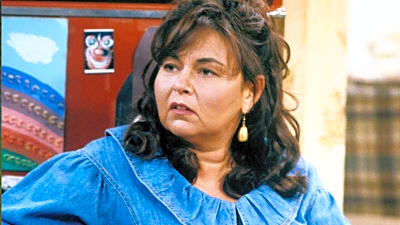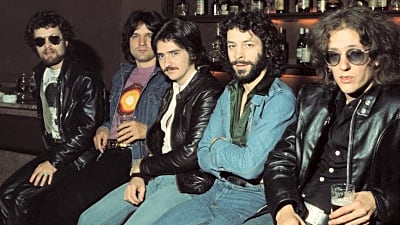
The crunch-time eloquence of James L. Brooks
James L. Brooks’s writing career stretches all the way back to the early 1960s, when the New York University dropout snagged a job as a CBS page. This sought-after entry-level gig was typically reserved for college graduates, but Brooks had an in through his sister, and sometimes an in is as good as a sterling letter of recommendation. It’s also good to be lucky, which the young scribe happened to be when he filled in for a vacationing news copywriter who never came back from vacation. Brooks now occupied a desk at one of the most esteemed news organizations in the world, the 57th Street home of Edward R. Morrow, Eric Sevareid and Walter Kronkite, and it wasn’t long before he found himself banging out copy on an earth-shattering breaking story: the assassination of President John F. Kennedy. Brooks flung himself into moment, firing off a flurry of words as the world shifted beneath his feet. This was the pivotal assignment that could vault him into the upper echelon of journalism. When he looked down at his text, he beheld a clutter of nonsense.
“You want to look back on these memories of life, and when the crunch was on you came through,” Brooks told the Television Academy in 2003. “When the crunch was on, I wrote gibberish.”
You can’t blame a kid for dreaming. Brooks, who turns eighty on May 9th, came of age in an era where playwrights and television writers could be household names. The American theater was in the midst of a creative boom, which led to dramatists such as Arthur Miller, Tennessee Williams and Clifford Odets being worshipped as modern Shakespeares and Molières. This coincided with the proliferation of broadcast anthology showcases like “Playhouse 90”, “Studio One” and “The Philco Television Playhouse”, which were powered by the forcefully eloquent likes of Paddy Chayefsky, Horton Foote and Rod Serling. Writers were out front, and Brooks found he had a yen for those who could knock out snappy banter or emotionally piercing dialogue. Naturally, he adored Chayefsky, who composed soaring monologues that often found characters at their hyper-articulate best in moments of extreme duress. Chayefsky’s people came through in the crunch. This was Brooks’s guy.
Whereas Chayefsky had a stunning capacity for both tenderness and savagery in his writing, Brooks never lost faith in the innate goodness of human beings. Even at his most vicious, probably Aaron Altman’s “Six years from now…” kiss-off line to Jane Craig in “Broadcast News”, we understand the character is deeply wounded and being uncharacteristically nasty; we know his hurt, and we know the regret he’ll be feeling within a nanosecond or two after uttering it. It’s a different kind of coming through in the crunch, and sometimes cruelty comes much more easily than kindness.
The Brooks we love places his likable-in-their-way characters in impossible moments without a clear plan of attack. The whole of “The Mary Tyler Moore Show” was a chamber orchestra of inherently decent individuals drifting in and out of absurd crises; yes, Ted Baxter was a horribly pompous jackass, but he was too shallow in his ambition and limited in talent to do any real damage. Whenever the show threatened to get too heavy or heartbreaking, there was a punch line just around the corner waiting to deliver us from despair.
“Taxi” wasn’t quite as reassuring. The knockabout creation of Brooks, Stan Daniels, David Davis and Ed. Weinberger, “Taxi” threw viewers in with a collection of strivers, eccentrics and resigned nine-to-fivers who, over five seasons, took it on the chin with admirable resilience. The tone was perfectly set in the pilot, which rides a silly contrivance – a pay phone with no coin box, and, thus, unlimited minutes at a time when you had to take out a loan to call relatives living in a different state – to a deeply moving finale that finds the series’ putative lead, Alex Rieger (Judd Hirsch), driving overnight to the Miami Airport to chat up the daughter he hasn’t seen in fifteen years. Though Alex has spent close to two days in a car with four of his coworkers, he arrives at the airline terminal with no script. It’s a cordial reunion at first, but his daughter bristles at his repeated invocation of “father”. To her, “father” is the man who raised her. You see her point, and begin to resent Alex for barging back into her life. But he counters with a crunch-time monologue recounting the two years he put in as her father. The memories come quick because he probably hasn’t gone a day without thinking of them: her feeding regimen, her temperament, her favorite joke… and then he sees the young adult standing in front of him. And he wants back in. Of course, it’s not happily ever after because Brooks knows life doesn’t work that way (see Reverend Jim’s shattering Season Two confession to Elaine), but a hug and an address to write to (via Alex’s driver’s license) is the best you can hope for in this situation. And it’s all the result of a malfunctioning pay phone.
Brooks segued to movies with tremendous success, winning Best Picture and Director for adapting Larry McMurtry’s “Terms of Endearment”, and earning eight Oscar nominations for spilling his heart and soul in “Broadcast News”: a wistful love triangle set against the death of the kind of public service (i.e. non-ratings-driven) TV journalism Brooks revered. Both films are loaded with vintage Brooks monologues that leave you laughing and crying and wishing like hell you could be this rhetorically sharp when challenged. There was more to come in the splendid “As Good As It Gets”, but Brooks took a big-screen tumble on the way there with “I’ll Do Anything”, an ambitious musical showbiz dramedy about a washed-up actor (Nick Nolte) forced to step up as a father to his precocious young daughter (Whittni Wright) when his ex-wife (Tracey Ullman) is hauled off to jail. When poor test screenings prompted Brooks to scrap the musical numbers, he was left with a slightly peeved satire that, in the wake of Robert Altman’s “The Player”, felt a tad timid to most critics. Though it’s a little choppy in the telling, the film is every bit as funny and sad and wise as his previous triumphs, and deserves a critical reevaluation if only for the sensational performances from Nolte and Wright. It’s also got the most righteous takedown of a smug Hollywood exec you’ll ever see.
The scene starts with Nolte’s character, Matt Hobbs, who, scrambling for acting work, stumbles into a gig driving for a big-time Hollywood producer of mindless action films (Albert Brooks doing a scorching Joel Silver riff). When Hobbs overhears an arrogant, up-and-coming development exec (Jeb Brown) dismissing a list of world-class performers (e.g. Ed Harris, Jeff Daniels and Bob Hoskins) on the basis of their physical deficiencies, he channels every struggling actor’s frustrations into a searing outburst. The suit tells Hobbs to mind his own business, which sets up a “this is my business” retort, but Brooks puts some topspin on the return. “You’re minding my business. That’s my problem.” Then the fireworks. Hobbs upbraids the exec for not understanding that casting an Ed Harris is a ticket to transcendence; you’ve just got to give them room to find the magic in the part (which lines up with Brooks’s actor-friendly, takes-aplenty approach). Then he levels the I-see-right-through-you coup de grâce: “It’s not your fault, the stupidity. Because you’re just a scared little prick who gets to say he’s making movies. The only thing they ever taught you is that what you really like doesn’t matter.” Hobbs is subsequently taken aback by his boldness because he’s not a cruel man (a small, but crucial beat that separates Brooks from a misanthropist like David Mamet), but the point stands.
Brooks hasn’t made a film since the critical and commercial failure of 2010’s “How Do You Know”, which is a profound bummer because, despite its narrative shagginess, it’s a big-hearted romantic comedy that subverts genre convention at every turn. You can occasionally feel the cliché-averse effort, but Brooks’s stellar cast – led by Paul Rudd, Reese Withserpoon, Owen Wilson and Jack Nicholson (who’s also been MIA from movies for a decade) – imbue the material with the acuteness of feeling we’ve come to expect from the maestro’s work. The film builds to a beautifully unexpected climax involving Rudd’s secretary (Kathryn Hahn) giving birth to her son. Brooks’s themes come into sharp focus as Rudd is asked to film an impromptu marriage proposal from the father (Lenny Venito) of Hahn’s child. It’s a “Taxi”-level high-wire bit of writing: the proposal is a dramatic payoff to a shopworn, but effective joke involving Nicholson. Venito goes for broke, and Hahn goes right there with him. It’s an intense several minutes that takes it out of the actors and the audience. Finally, Hahn accepts, at which point Venito asks if Rudd got it. He didn’t. Suddenly, we’ve got the inverse of Brooks’s dilemma: this blue-collar mensch just gave the greatest speech of his life, and this loser forgot to press record. Then Witherspoon leaps into action. She wants to re-stage the moment. It’s an impossible task that starts as pure gibberish, but as they plunge into the act, they get something just as lovely: two observers passionately recreating a moment that, as they recount it, has clearly changed their lives as well. It’s a knockout. It might be the best scene Brooks has ever written.
Life is tough. When the crunch is on, we’re lucky if we muddle through, which is more than good enough. But we’ll always want to do better than that. When we inevitably come up short, we’ll at least be able to go home and throw on something written by James L. Brooks, and, if nothing else, we’ll know what better looks like.
More must-reads:
Customize Your Newsletter
 +
+
Get the latest news and rumors, customized to your favorite sports and teams. Emailed daily. Always free!







